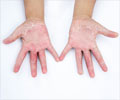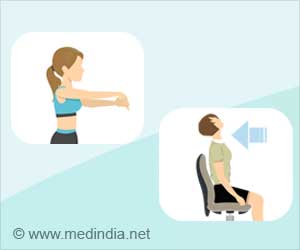- Runner's itch is usually a minor problem that is not a cause for concern
- Running consistently, taking antihistamines, and avoiding triggers such as particular foods and drinks will help you avoid runner's itch
- If you have a runner's itch, slow down or take a rest. If your symptoms are severe or do not improve with treatment, consult your doctor
Causes of Runner's Itch
Runner's itch can be caused by several factors. Here's what could be going on in your body to generate this itching sensation.Increased blood flow
Returning to your jogging regimen after being sedentary or not exercising for a long time can cause itching. Running raises your heart rate and blood flow by allowing your heart to transport more blood and oxygen to the targeted muscles. It causes your capillaries and arteries to dilate and your nerve cells to fire, resulting in an itching sensation.
Histamine secretion
According to a 2017 research, exercise may stimulate histamine release to reduce weariness rather than as an allergic reaction. Histamine causes your blood vessels to dilate, which adds to the itching feeling.
Skin sensitivity
If you have sensitive skin, you may be more prone to a runner's itch. Itching can be caused by allergies to specific laundry detergents, fabric softeners, or clothing materials. Sweating combined with dry skin might aggravate the irritation. To avoid sweaty skin, use sensitive skin laundry detergents and workout apparel made of moisture-wicking fibers. Use moisturizer before you run to combat dry skin.
Exercise induced urticaria
Exercise-induced urticaria is an allergic reaction that manifests itself as itching, hives, or skin redness.
Other symptoms may include:
- Cramps in the stomach
- Headache
- Difficulty breathing
- Facial, tongue, or hand swelling
Exercise Induced Vasculitis
Golfer's vasculitis and hiker's rash are two more names for exercise-induced vasculitis. It's also known as the Disney rash because it frequently combines being physically active and being exposed to sunshine on a hot day, both of which are prevalent at Disney amusement parks.In the thighs and lower legs, this inflammatory disorder causes red patches, purple blotches, and swelling. Intense stinging, agony and burning accompany the itchy rash.
Genetics may predispose you to exercise-induced vasculitis. Symptoms usually go away on their own after a few days.
Is it Possible to Treat Runner's Itch?
While the runner's itch is unpleasant, it is usually not a cause for concern. Establishing a consistent exercise regimen is the most effective approach to avoiding and minimising the severity of a runner's itch. The itching usually goes away when your body gets adjusted to exercising again.As soon as your symptoms appear, slow down, take a break, or stop exercising. If you have a severe case of a runner's itch that does not improve with therapy, you may need to quit running completely, especially if it is hot outside.
Home Remedies to Prevent Runner's Itch
Try the following home remedies to cure itching legs:- Bathe in warm water containing oatmeal, Epsom salts, or baking soda.
- To relieve itching, apply aloe vera gel, hydrocortisone lotion, or a cold compress to the affected region.
- Use compression stockings and elevate your legs for 15 minutes at a time several times each day to enhance leg circulation.
- Dizziness
- Lightheadedness
- Hives that occur in conjunction with intense stinging, pain, or burning and do not go away within 10 minutes.












